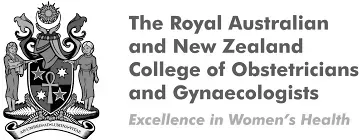Fertility Assessment
What is a Fertility Assessment?
A fertility assessment is a comprehensive evaluation to determine an individual's or couple's fertility status. This assessment helps identify potential issues that could affect the ability to conceive. It involves a series of tests and examinations for both partners to evaluate reproductive health. Specialists in reproductive medicine typically conduct fertility assessments and can provide valuable insights into any underlying medical conditions affecting fertility.
Infertility Evaluation
Infertility or subfertility is usually defined as the inability to conceive after 12 months of having unprotected sexual intercourse with a man or in a woman under 35 years of age or after six months in a woman over 35 years of age.
Infertility evaluation is used to help diagnose and treat any underlying issues that may prevent a couple from conceiving, such as hormonal imbalances, structural issues, or underlying medical conditions.
Who is Suitable for Fertility Assessment?
Fertility assessment is suitable for:
- Those who have been trying to conceive for over a year without success. For women over 35, seeking an assessment after six months of trying is advisable.
- People with a history of reproductive issues, such as polycystic ovary syndrome (PCOS), endometriosis, or irregular menstrual cycles.
- Individuals with medical conditions like diabetes, thyroid disorders, or previous cancer treatments.
- Women aged 35 and older and men aged 40 and older, as fertility can decline with age.
- Individuals or couples who want to understand their fertility status before trying to conceive.
- Those considering fertility treatments like IVF or sperm/egg donation.
Benefits of Fertility Assessment
- Early Detection of Issues: Identifies potential reproductive problems early, allowing for timely intervention and treatment.
- Personalised Treatment Plans: Provides a tailored approach to fertility treatment based on individual needs and medical history.
- Informed Decision Making: Helps individuals and couples make informed decisions about their reproductive health and family planning options.
- Improved Success Rates: Early intervention and appropriate treatments can increase the chances of successful conception.
- Peace of Mind: Provides reassurance and reduces anxiety by understanding fertility health and potential challenges.
- Cost-Effectiveness: Identifies the most appropriate and effective treatments, potentially saving time and money on unnecessary procedures.
Types of Fertility Assessments
For Women:
- Medical History and Physical Examination: Review of medical history, lifestyle factors, and a physical exam to check for any obvious signs of reproductive issues.
- Hormonal Tests: Blood tests to measure hormone levels such as follicle-stimulating hormone (FSH), luteinising hormone (LH), estradiol, prolactin, and thyroid hormones. These help assess ovarian reserve and overall hormonal balance.
- Ovulation Testing: Includes tests to confirm ovulation, such as basal body temperature charting, ovulation predictor kits, and mid-luteal phase progesterone blood tests.
- Ultrasound Examination: Transvaginal ultrasound to visualise the ovaries, uterus, and antral follicle count. This helps assess ovarian reserve and detect any abnormalities like fibroids or polyps.
- Hysterosalpingography (HSG): An X-ray procedure to examine the fallopian tubes and uterus for blockages or abnormalities.
- HyCoSy: It is short for Hysterosalpingo-contrast-sonography. It is an Ultrasound procedure to examine the fallopian tubes and uterus for blockage and structural defects. It is similar to HSG without the use of X-ray.
- Laparoscopy: A minimally invasive surgical procedure to diagnose and treat conditions like endometriosis or pelvic adhesions.
For Men:
- Medical History and Physical Examination: Review of medical history, lifestyle factors, and a physical exam to check for any obvious signs of reproductive issues.
- Semen Analysis: Examination of a semen sample to evaluate sperm count, motility, morphology, and volume.
- Hormonal Tests: Blood tests to measure hormone levels such as testosterone, FSH, and LH, which play a crucial role in sperm production.
- Genetic Testing: Identifies potential genetic factors affecting fertility, such as chromosomal abnormalities or Y chromosome microdeletions.
- Scrotal Ultrasound: An imaging test to check for varicoceles, testicular tumours, or other abnormalities that could impact sperm production.
Combined Tests:
- Post-Coital Test: Evaluates the interaction between sperm and cervical mucus after intercourse to determine if the environment is conducive to sperm survival and movement.
- Genetic Carrier Screening: This is for both partners to identify any genetic disorders or chromosomal abnormalities that could affect fertility or be passed onto offspring.
- Infectious Disease Screening: Tests for sexually transmitted infections (STIs) that could impact fertility, such as chlamydia or gonorrhoea.
What to Do Before a Fertility Assessment?
Preparing for a fertility assessment involves several steps to ensure that the process is as informative and effective as possible:
- Gather Medical History:
- Collect detailed information about your medical history, including previous surgeries, chronic illnesses, or reproductive issues.
- Document your menstrual cycle history, including the regularity, duration, and abnormalities.
- Prepare a list of any medications, supplements, and over-the-counter drugs you are currently taking.
- Lifestyle Review:
- Evaluate and document lifestyle factors such as diet, exercise, alcohol consumption, smoking, and stress levels.
- Consider any occupational or environmental exposures that could affect fertility.
- Understand Family History: Gather information about your family’s medical history, particularly genetic disorders, reproductive issues, and chronic diseases.
- Schedule Proper Timing: If possible, schedule the appointment at a time when you are not menstruating to facilitate certain tests and examinations.
- Partner Involvement: If you have a partner, you must be involved in the assessment process. Encourage your partner to gather their medical history and prepare for their part of the evaluation.
- Documentation: Bring any previous medical records, test results, or fertility treatment history to your appointment.
- Questions and Concerns: Prepare a list of questions or concerns you may have regarding your fertility and the assessment process.
Fertility Assessment Procedure
A fertility assessment typically involves several steps and procedures for both partners:
- Medical History Review: The doctor will review your medical, menstrual, and lifestyle history, as well as any previous fertility treatments or assessments.
- Physical Examination: A physical examination will check for any physical signs of reproductive issues.
What to Expect After a Fertility Assessment?
- Results Discussion: The doctor will review the results of all tests and examinations with you, explaining any findings and what they mean for your fertility.
- Diagnosis: If any issues are identified, you will receive a diagnosis and an explanation of the potential impact on your fertility.
- Treatment Options: Based on the assessment results, the doctor will discuss potential treatment options, including lifestyle changes, medication, surgery, or assisted reproductive technologies (ART) such as IVF.
- Personalised Plan: A personalised fertility treatment plan will be developed based on your needs and medical history.
- Follow-Up Appointments: You may need to schedule follow-up appointments to monitor progress, adjust treatments, or undergo additional testing.
- Emotional Support: Fertility assessments can be emotionally challenging. It is important to seek support from counsellors, support groups, or fertility specialists to help manage stress and emotions.
- Lifestyle Recommendations: Your doctor may recommend lifestyle changes to improve fertility, such as dietary modifications, exercise, stress reduction, and avoiding harmful substances.
- Financial Considerations: Discuss the cost of potential treatments and assessments and any insurance coverage or financial assistance programs available.
Fertility Assessment Prognosis
Early identification of fertility issues allows for timely intervention, which can significantly improve the chances of successful conception. For many couples, addressing issues such as hormonal imbalances or blocked fallopian tubes can lead to a positive outcome with appropriate treatment.
The success of fertility treatments often increases with personalised care. Tailored treatment plans based on the specific issues identified during the assessment can enhance the likelihood of conception.
Positive lifestyle changes, such as improved diet, regular exercise, and reducing stress, can positively affect fertility. The prognosis is generally better for individuals who adopt healthier lifestyles as their healthcare providers recommend ( be the healthiest version of yourself!).
Age plays a significant role in fertility prognosis. Younger women generally have a better prognosis for successful conception following fertility treatment compared to older women, as fertility naturally declines with age.
Advances in reproductive technology, such as in vitro fertilisation (IVF) and intracytoplasmic sperm injection (ICSI), offer high success rates for many individuals and couples, especially when conventional methods are not effective.
Fertility Assessment Risks
While fertility assessments are generally safe, there are some risks associated with certain procedures:
- Hormonal Testing: Minimal risk, generally limited to minor discomfort or bruising at the blood draw site.
- Ultrasound Examination: Generally safe, but transvaginal ultrasounds may cause slight discomfort or pressure.
- Hysterosalpingography (HSG) and Hysterosalpingo-contrast-sonography (HyCoSy): Risks include allergic reactions to the contrast dye, pelvic infection, spotting or bleeding, and uterine or tubal injury (uncommon).
- Laparoscopy: This surgical procedure carries risks such as infection, bleeding, and damage to surrounding organs. Recovery time is also a consideration.
- Semen Analysis: No significant risks involved.
- Genetic Testing: Typically safe but may cause emotional stress or anxiety depending on the results.
- Post-Coital Test: Minimal risk, may cause slight discomfort.
- Scrotal Ultrasound: No significant risks involved.
What if the Fertility Assessment is Delayed?
Delaying a fertility assessment can have several implications:
- Age-Related Decline: Fertility naturally declines with age, especially in women. Delaying assessment and treatment can reduce the chances of successful conception.
- Progression of Underlying Conditions: Conditions such as endometriosis, PCOS, or other reproductive disorders can worsen over time, making treatment more complicated and less effective if delayed.
- Increased Anxiety and Stress: Uncertainty about fertility status can lead to increased stress and anxiety, which can further impact overall health and fertility.
- Delayed Diagnosis and Treatment: Early diagnosis of conditions like blocked fallopian tubes, hormonal imbalances, or low sperm count can lead to timely and effective treatment. Delays can reduce the window of opportunity for successful interventions.
- Impact on Treatment Options: Some fertility treatments are more effective when started earlier. Delaying assessment can limit the availability and success rates of certain treatments.
Cost of Fertility Assessment
The cost of a fertility assessment will vary depending on the type of assessment you need and the provider performing the examination. Generally, a basic fertility assessment will often cost between $500 and $1,000. Some of this may be covered by Medicare, depending on your situation. The cost may be higher if you need more comprehensive testing, such as bloodwork or imaging.



Contact
Melbourne IVF
268 Manningham Rd, Templestowe Lower VIC 3107
New Patient - (03) 9006 5570
Existing Patient - 03 9473 4444
Practice Hours:
Mon - Fri 7:00 am to 4:30 pm
Sat - by prior arrangement
All Rights Reserved | Dr Yousif Alyousif
